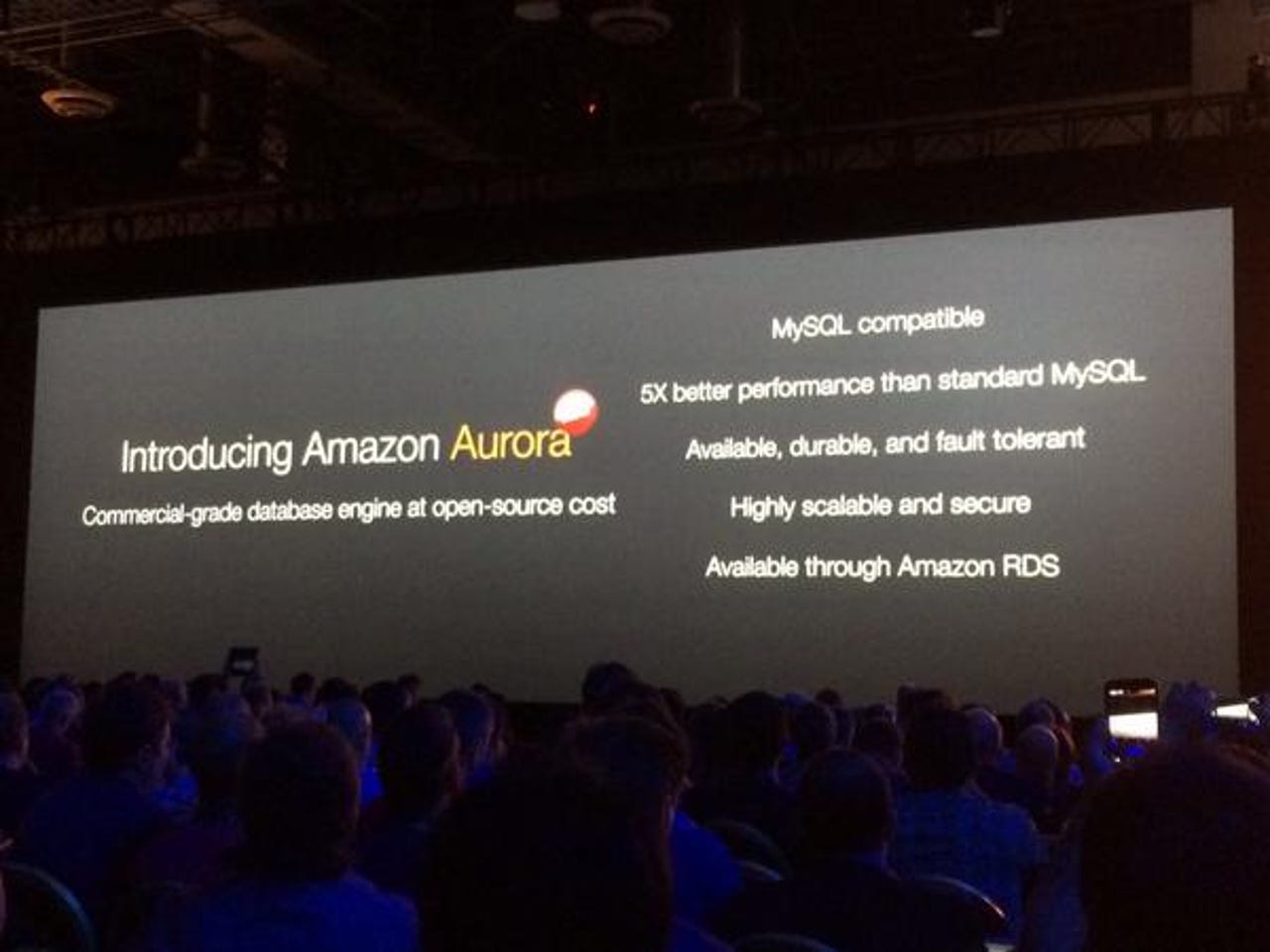AWS tackles relational databases, possibly incumbents


Amazon Web Services on Wednesday launched a new relational database called Aurora that aims to provide proprietary performance at the cost of open source.
Aurora, introduced by AWS Senior Vice President Andy Jassy at re:Invent, has been a three year effort designed to take MySQL compatibility and make it perform better. "Aurora means new dawn," said Jassy.
The AWS database will be MySQL compatible but with 5 times the performance with a 10th of the cost, said Jassy. AWS has been working on Aurora for three years.
Also: AWS: With more than 1 million active customers, we're your stack
Among the performance gains:
- 6 million inserts per minute, 30 million selects per minute;
- Data is replicated six ways across three availability zones;
- Aurora is backed up on S3;
- Fault tolerant with crash recovery in seconds.
Those features are going to start at 29 cents per hour. AWS said the preview starts today. What's interesting here is that AWS is taking on relational databases, which are standard in the enterprise even as big data gets the attention.
The fallout from the Aurora launch could be large assuming that AWS' performance claims hold up. Why? To date, the conventional wisdom that the enterprise analytics mesh would include new workloads on open source databases and Hadoop and a relational side that would come from the usual suspects: Oracle, IBM and Microsoft.
What Aurora could do is capture new workloads just enough to crimp the maintenance and licensing revenue of a company like Oracle. Should Aurora further commoditize databases, enterprise buyers could get some leverage. The key will be how easy AWS can make a database move for customers.